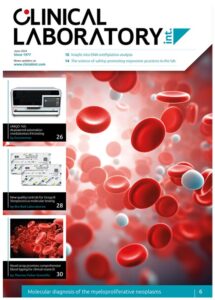A different kind of anaesthesia a possible treatment for stress induced cardiomyopathy
Stress induced cardiomyopathy after cerebral haemorrhage has been shown to increase the risk of further brain damage. These patients can now be identified by a simple blood test, and a possible treatment for stress induced cardiomyopathy has been discovered – a different kind of anaesthesia than that currently being used.
Stress induced cardiomyopathy is a relatively recently discovered disease where part of the heart muscle ceases to function and results in the heart having reduced pumping capacity. Approximately 90 percent of those affected are upper middle-aged women. The onset is similar to a heart attack, with chest pain and difficulty breathing, but stress induced cardiomyopathy follows a different course.
With stress induced heart failure, the heart spontaneously recovers within a few weeks and thus the prognosis has been seen as good; but, new findings show the prognosis to be approximately the same as for acute ischemic heart disease.
In a new thesis from Sahlgrenska Academy, all patients from the region that suffered a specific type of cerebral haemorrhage (subarachnoid haemorrhage) were followed for two years. In conjunction with the haemorrhage, patients experience a strong stress component. Stress induced cardiomyopathy is therefore relatively common (10-20 percent of the patients) following this type of cerebral haemorrhage, which can cause significant brain damage.
“We saw that patients with stress induced cardiomyopathy had an increased risk of further brain damage in the aftermath of a cerebral haemorrhage and had a worse long-term prognosis, even after we made adjustments for other risk factors,” says Jonatan Oras, PhD Student at Sahlgrenska Academy.
In the thesis, two biomarkers were identified that can be used to identify patients who suffer from stress induced heart failure.
“With a blood test, we are now able to quickly identify patients with stress induced heart failure and apply the right measures sooner,” says Jonatan Oras.
In the experimental part of the thesis, an animal model was used with rats to find a possible treatment for stress induced heart failure. It was found that if the animals were anesthetized with a particular anaesthetic (isoflurane), they did not develop heart failure and the heart muscle retained its elasticity and pumping capacity.
“When we used other anaesthetics, including those currently in use in healthcare, we saw no cardioprotective effect. This is the first potential cardioprotective treatment for stress induced cardiomyopathy to be presented,” says Jonatan Oras.
Further studies of this possible treatment for stress induced cardiomyopathy on patients at risk of developing stress induced cardiomyopathy should be conducted,” Jonatan Oras points out. Sahlgrenska Academy


